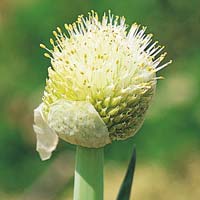Gluten Free
What does following a gluten-free diet mean? That you're embarking on an easy diet with a wide range of health-promoting effects. Instead of dwelling on what you’re giving up, consider that you’re going to enjoy a whole new world of delicious food options to meet your special dietary needs. You’ll be eating seasonally, choosing more fresh fruits and vegetables, focusing on meats, seafood, poultry, legumes, lentils, corn, and rice, and discovering fascinating ancient grains such as quinoa, amaranth, and millet. You’ll be able to eat potatoes, eggs, most cheeses, even chocolate (!)—and enjoy them without guilt because you’ll be taking good care of your body. In fact, you’ll probably end up eating—and feeling—better than ever!
Visit this page for more information about living Gluten Free
---
We carry a large variety of gluten free items, the brands listed below represent just some of the offerings we carry















More Diets
Onion
 © Martin Wall
© Martin WallParts Used & Where Grown
Like its close cousins garlic, chives, scallions, and leeks, onion is a member of the lily family (Liliaceae). It is native to Eurasia but now grows all over the world, due mostly to people bringing it with them as a staple food wherever they migrated. The French explorer Pere Marquette was saved from starvation in 1624 by eating wild onions near the present site of Chicago—the name of the city is derived from a Native American word for the odor of onions.1 The bulb of the plant is used medicinally.
- Reliable and relatively consistent scientific data showing a substantial health benefit.
- Contradictory, insufficient, or preliminary studies suggesting a health benefit or minimal health benefit.
- For an herb, supported by traditional use but minimal or no scientific evidence. For a supplement, little scientific support.
Our proprietary “Star-Rating” system was developed to help you easily understand the amount of scientific support behind each supplement in relation to a specific health condition. While there is no way to predict whether a vitamin, mineral, or herb will successfully treat or prevent associated health conditions, our unique ratings tell you how well these supplements are understood by the medical community, and whether studies have found them to be effective for other people.
For over a decade, our team has combed through thousands of research articles published in reputable journals. To help you make educated decisions, and to better understand controversial or confusing supplements, our medical experts have digested the science into these three easy-to-follow ratings. We hope this provides you with a helpful resource to make informed decisions towards your health and well-being.
This supplement has been used in connection with the following health conditions:
| Used for | Amount | Why |
|---|---|---|
Type 2 Diabetes | 2 to 3.5 ounces fresh onion daily | Onion may lower blood glucose levels and improve glucose tolerance in people with type 2 diabetes. |
Asthma | Refer to label instructions | Onion may act as an anti-inflammatory in people with asthma. |
Cough | Refer to label instructions | Onion has a long history of use for relieving coughs. |
Eczema | Refer to label instructions | Onion injections into the skin and topical onion applications have been shown to inhibit skin inflammation in people with eczema, according to one trial. |
Infection | Refer to label instructions | Onion is an herb that directly attack microbes. |
Type 1 Diabetes | Refer to label instructions | Research in laboratory animals suggests onion and its active constituents may lower blood glucose levels, raise insulin levels, reduce advanced glycation end-product (AGE) formation, and possibly prevent diabetes complications. |
Traditional Use (May Not Be Supported by Scientific Studies)
Onion has been used as food for many centuries.2 Onion was also a popular folk remedy, being applied to tumors, made into a syrup for relieving coughs, or prepared in a tincture (using gin) to relieve “dropsy” (heart failure–related edema).3 It was considered a weaker version of garlic by many herbal practitioners. Like garlic, onion has a longstanding but unsubstantiated reputation as an aphrodisiac.4
Copyright © 2026 TraceGains, Inc. All rights reserved.
Learn more about TraceGains, the company.
The information presented by TraceGains is for informational purposes only. It is based on scientific studies (human, animal, or in vitro), clinical experience, or traditional usage as cited in each article. The results reported may not necessarily occur in all individuals. Self-treatment is not recommended for life-threatening conditions that require medical treatment under a doctor's care. For many of the conditions discussed, treatment with prescription or over the counter medication is also available. Consult your doctor, practitioner, and/or pharmacist for any health problem and before using any supplements or before making any changes in prescribed medications. Information expires December 2026.









